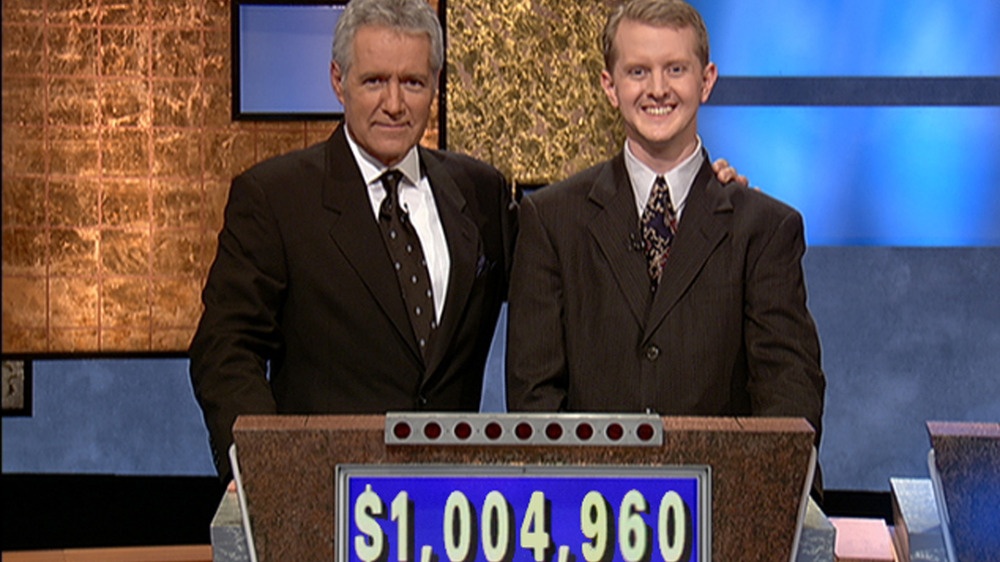What It's Like To Win On Jeopardy!
Jeopardy is famously hard to win, which makes the payout for the first place winner all the more satisfying. If you can pull obscure sports and geographic trivia out of your head, you most certainly deserve millions. But winning at Jeopardy isn't always as lucrative as it might seem — some players have to pay a bunch of taxes on their winnings, or may not even get them at all.
Some of the biggest Jeopardy winners include Ken Jennings, James Holzhauer, Julia Collins, and Brad Rutter, with Jennings and Holzhauer winning more than $2 million over the course of their many appearances on the show. But you know what they say about money, right? The more you have, the more problems that come along with it. Take Holzhauer for example, who holds the record for the most dough earned in a single episode ($131,127), per NBC News. Or Jennings, who holds the record for the most overall winnings ($2.5 million) in 2004, per ABC News. How much do they really get at the end of the day?
Contestants rarely get the full amount of their winnings
Sure, you can win mega bucks on Jeopardy, but the IRS considers these winnings just regular income, so it taxes it at the regular rate. You also have to pay state taxes, and it doesn't matter where you live. Since the show takes place in California, that's where it's taxed. NBC News reports that James Holzhauer's winnings, which were $2,462,216, were cut down by 47.6% when you combine the federal and state tax, so he only got to take home $1.29 million. Still not bad, but that's almost half of your prize money going right into the pockets of the government.
At least he got to use it. He told NBC News that he and his wife planned on taking a huge trip with the cash and he also donated to some charities. Ken Jennings was similarly taxed on his winnings and he said in a follow-up video that the money allowed him to spend more time with his family and afford him a house in Seattle. He wrote on his blog that he took care of the "three T's" with his money — taxes, tithing, and a widescreen TV. The tithing is a part of his religion as a member of the Church of Latter-Day Saints, which requires members to cough up 10% of their income to the church. Between the IRS, California taxes, and the Mormon church, he couldn't have been left with all that much.
Other contestants don't get their winnings at all
One lesser-known fact is that if you don't win first place on Jeopardy, it doesn't matter how much earnings you've racked up. That's right, while the first-place winners get their prize money and then have to give it away to the IRS, the second- and third-place winners have it far worse. According to Cheatsheet, the second-place winner gets $2,000 and the third-place winner gets $1,000, even though they won a lot more than that. When you apply the same math to those amounts as the first-place winner, you really only walk away with a couple hundred bucks, which seems unfair since you have to really know your stuff to even get on the show. But them's the breaks. We'll take "what is super unfair for $100, please."
Even though Jeopardy winnings are taxed and you go home with less than you might have actually earned, it's still an honor to make it on the show and compete.



